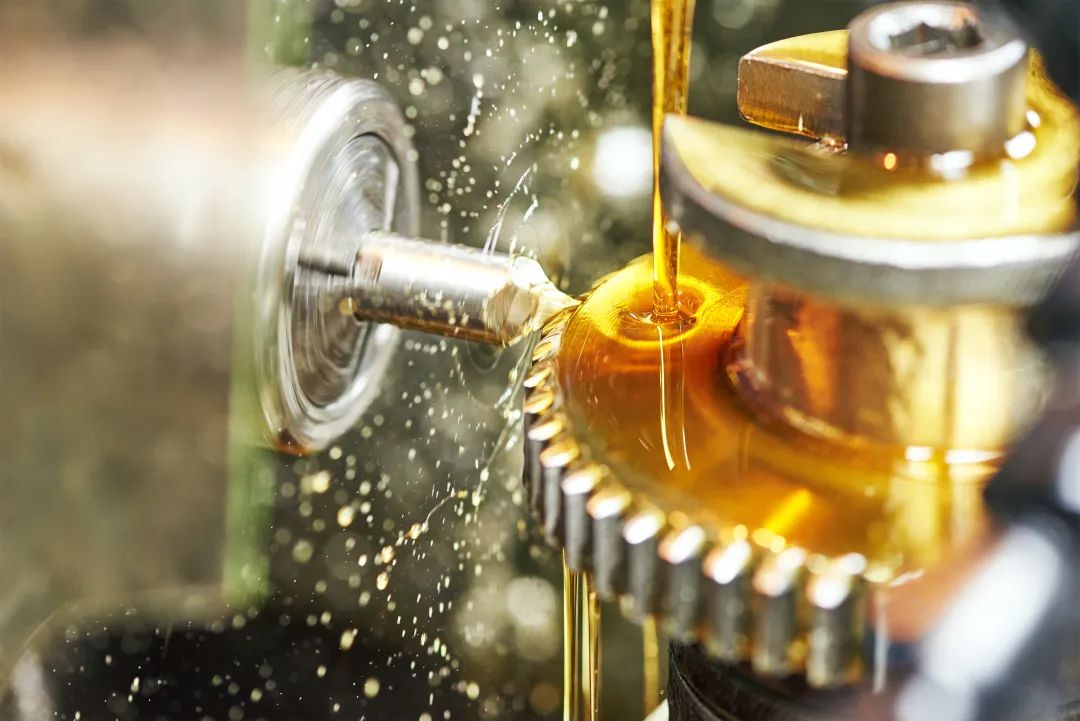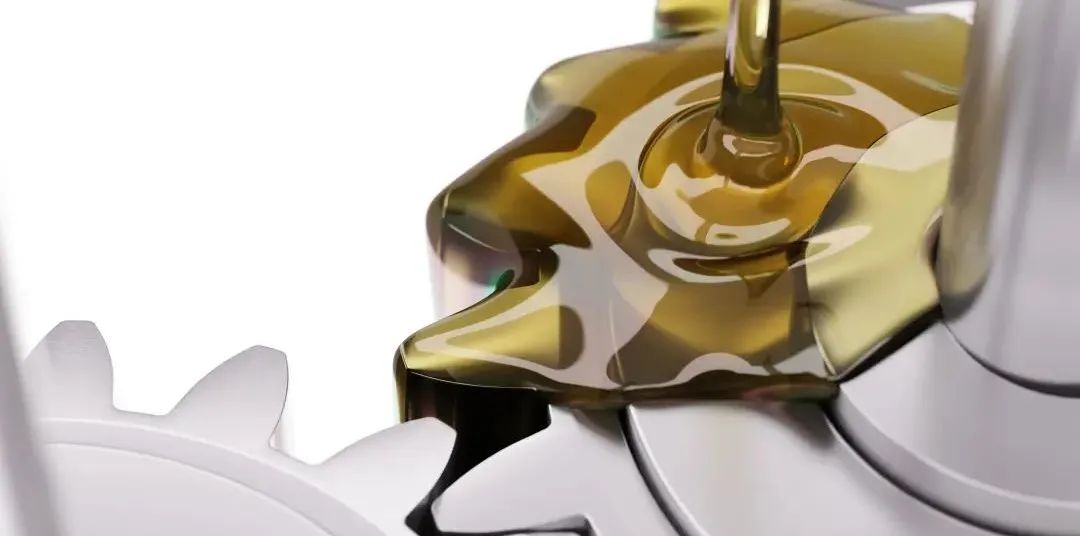Misunderstandings in oil selection and oil change of industrial gear oil?
December 18, 2022
When the equipment is faced with heavy load conditions, long cycle operation and changeable weather, have you considered the lubrication requirements of the equipment? Do you want a lubrication scheme for your own equipment? Today, we will talk about the selection and change of industrial Gear Oil.

When selecting industrial gear oil, there are often the following mistakes: Myth 1: The viscosity is either high or low. A thicker gear oil is a good gear oil The statement that "higher viscosity is better than lower viscosity" is not comprehensive. Although it is beneficial to improve the oil film strength in the state of fluid lubrication and plays a role in supporting load, vibration reduction and sealing, higher viscosity generates greater friction resistance and consumes more power energy. Modern industrial gear oils contain high efficiency additives, which can form lubricating film in the mixed lubrication and boundary lubrication state of gears. Therefore, under the condition of ensuring thin oil film lubrication, it is better to use low viscosity lubricating oil as far as possible to save energy. The low viscosity of lubricating oil is an important trend in the development of lubricating oil in the world at present, but what is the most reasonable degree of reduction should be determined through experiments. Mistake 2: As long as it is gear oil, it is not necessary to distinguish separate gear oil or closed gear oil. Closed gear oil cannot replace open gear oil. For many years, open gear units have been widely used in large rotating equipment such as dryers, grinders, mining shovels, etc. in cement, metallurgy, mining and other industries. However, the lubrication of their equipment is not well understood, leading to accidents from time to time. Our country has formulated product specifications for ordinary open gear oil, and extreme pressure open gear oil (L-CKJ) is also available, which can be selected by users according to their needs. Some people used closed industrial gear oil instead of open gear oil. As a result, it not only leaked oil, resulting in lubrication failure, but also seriously splashed, polluting the environment, causing large waste, and could not be used for a long time. According to the viscosity classification of open gear oil, the minimum 100oC kinematic viscosity is 68mm2/s (± 10%) and the maximum is 320mm2/s (± 10%), while the closed industrial gear oil is classified by 40oC kinematic viscosity, and the 100 kinematic viscosity of the current highest grade (680) is still less than 68mm2/s. Therefore, the most important characteristics of open gear oil: good adhesion and cohesion are far behind closed gear oil. Myth 3: High price equals good performance It is generally believed that "expensive" represents "good performance", but this statement is not entirely appropriate in industrial gear oil. Industrial gear oil on the market is generally divided into three types according to the difference of Base Oil: mineral type, semi synthetic oil and fully synthetic oil. Readers know that the price of fully synthetic oil is relatively expensive. The cost difference is mainly caused by the complexity of manufacturing process and the maturity of products. Therefore, the price difference cannot represent the difference of oil lubrication performance. Mistake 4: Imported oil is better than domestic oil The phenomenon of "foreign monks are good at chanting sutras" has become outdated. With the continuous development of domestic oil research and development, the performance of domestic oil products is no different from that of foreign oil products.

How to choose a cost-effective industrial gear oil? It is important to consider the working conditions of industrial equipment. The basic performance and main selection principle of industrial lubricating oil are viscosity. To some extent, the specific type and viscosity grade of the lubricating oil used are determined by the ambient temperature. Under the working conditions of medium speed, medium load and low temperature, medium viscosity lubricating oil is selected; Under the working conditions of high load, low speed and high temperature, high viscosity lubricating oil or lubricating oil added with extreme pressure antiwear agent shall be selected; Under the working conditions of low load, high speed and low temperature, low viscosity lubricating oil is selected; In wide, high and low temperature range, light load and high speed, and other special features Synthetic lubricating oil shall be selected under special working conditions. The selection of industrial gear oil mainly considers the following factors 1. Temperature: When the temperature drops, the lubricating oil will become thicker. When the temperature rises, it will become thinner. Therefore, low viscosity lubricating oil is required under low temperature conditions, while heavy oil is required under high temperature conditions to prevent dry friction between metals. Select thin oil with low viscosity at low temperature and heavy oil with high viscosity at high temperature; At the same time, the pour point of gear oil shall be 3-5 ℃ lower than the ambient temperature. 2. Speed: The faster the sliding and rotating speed is, the less time it takes to squeeze lubricant between gears. At the same time, the lubricating oil is easier to agglomerate and thicken under high-speed operation. Therefore, high viscosity oil (heavy oil) is used for low speed, and low viscosity oil (thin oil) is used for high speed. 3. Load: heavy oil can better resist heavy load and impact load. In addition to viscous oil, oil with extreme pressure additives can provide better protection for gears at the same viscosity, such as L-CKD heavy duty industrial gear oil produced by Great Wall Company. 4. Impact load: for example, the rhythmic force generated by the engine, which requires relatively thick oil to prevent boundary lubrication caused by the instantaneous fragmentation of the oil film, because only a small amount of lubricating oil can be left. In this case, a lubricating oil containing extreme pressure additive (EP) is required. 5. Gear type: when straight, helical, herringbone and bevel gear pairs are used, sliding and rotation will produce effective oil film formation to slow down the direct contact between the meshing gear teeth. On unequal shaft drives such as turbine worm and hypoid gears, the direction of relative sliding operation is not conducive to maintaining the oil film. In this drive, there is often a lot of boundary lubrication. Therefore, heavy oil is still needed on turbine worm gear units and hyperbolic gear units with large eccentricity. When these transmission devices are under heavy load and high pressure, it is necessary to choose the lubricating oil with high strength oil film characteristics (high viscosity), smoothness, lubricity or even extreme pressure additives. 6. Water pollution: L-CKD type gear oil with good water separation performance shall be selected for gear boxes that may have water ingress. With the development of science and technology and industrial production, gear transmission is developing towards the direction of small size, light weight, high speed, heavy load and high power. For this reason, the requirements for oil used in gears are becoming more and more stringent. Its main development trend is to improve the performance of products, and the requirements for micro pitting resistance of gear oil emerge as the times require.







